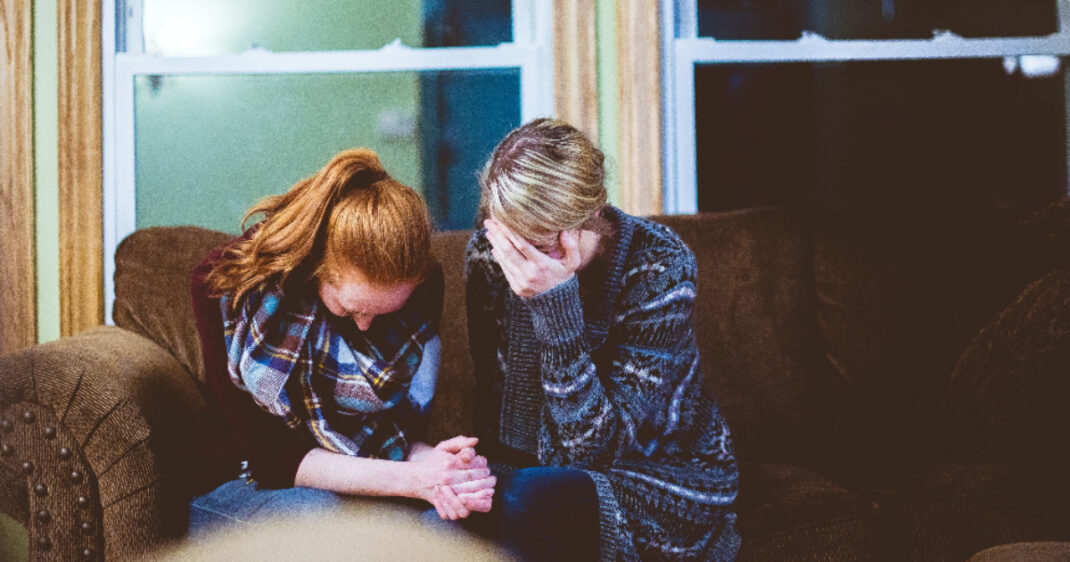Coping Tips and Support for Loved Ones of Addicts
Coping Tips and Support for Loved Ones of Addicts
Seeing someone you love struggling with addiction will change your life. You want to be there and support them in their recovery journey, but maybe they aren’t ready to start the journey. Maybe they have started but the ups and downs have taken a huge toll on you and you’re not sure how to ride the rollercoaster with them.
Advice for Loved Ones of Addicts
The best advice for loved ones of addicts is to educate yourself. Learning as much as possible helps you to see the situation from a place of understanding rather than blame. It also gives you more tools to help them as well as yourself in the most difficult times.
Let’s look at a few things that you don’t want to do, and then we will look at some of the really helpful things you should do. Some of the most natural reactions for loved ones of addicts only make the situation worse.
Don’t Blame Them
Addiction is a disease. The more you understand the disease the less you will blame your loved one for it. This disease changes the brain to where the addict is fighting a monster. Addiction is not a weakness. They need someone who supports them in fighting the monster and doesn’t blame them for the monster.
It can’t be you against your loved one and the monster. It needs to be you and your loved one against the monster.
Don’t Ignore the Problem
It can also be tempting to downplay the situation. Accepting the severity of the situation is a challenge. This is someone you love and to think of addiction having a great hold on them is very painful. Parents of addicted loved ones may especially try to downplay as they just don’t want this for their child.
Ignoring the signs and making excuses is a way to protect yourself, not your loved one. Don’t tell yourself they will just snap out of this when life’s circumstances aren’t so stressful. Addiction is a progressive disease, and the more someone drinks, the worse it gets. This is why it’s so important to see it for what it is and get the necessary help before the monster is even bigger.
Don’t Try Tough Love
When you feel desperate to help an addict, you might try tough love when they don’t seem to be helping themselves. This may push them away from you, the person from who they need support. Ultimatums or forcing them into treatment programs are not long-term fixes. If they aren’t ready to get sober they will fall back into addiction.
Finding treatment the right way with all the support they can get will give them their best shot at relapse prevention. Sober recovery is when they will need the most support possible. You don’t want to create a space between you with the tough love that loses their trust in you.
Don’t Give Up
It’s easy to say, I have done all I can, there is nothing else I can do. This takes away any responsibility you once felt to help your loved one. It’s normal to feel frustrated if things don’t get better or if they get worse. The last thing they need is to think that you don’t believe in them.
You don’t want them to ever give up, so make sure you never give up either. Keep being the supportive help that they need. You never know when the pieces will fall into place, you just have to make sure that the supportive loved one piece is there for them when they need it.
Learn As Much As Possible
Like we said earlier, the more you educate yourself, the better you will handle your loved one’s addictive behaviors. Education helps you stop blaming and start understanding. When you understand what is happening inside of the addict’s body and their physical dependence, you will see that you can’t judge them for the way they are acting.
Education also gives you helpful tips to help them and yourself. Just like they need support through this hard time, you also need support through this hard time.
Support Groups For Loved Ones of Addicts
Some people may be surprised to know that there are support groups for the families and parents of addicted loved ones. These groups are a safe place to talk and learn. They give support to loved ones of addicts with the opportunity to gain new perspectives.
Hearing from people who have gone through what you have can be motivating. Hearing from people who are in the same palace as you can help you to feel less isolated on your journey with your addicted loved one. It’s easier to give up when you’re all alone.
People look for these support groups for loved ones of addicts with hope for a better quality of life. They’re hoping to find solutions to their problems with the addicted person. They want to lower the stress they feel from the situation and improve their own mental health. Support groups can do all of these things!
It can be incredibly isolating when you are dealing with an addicted loved one because you may feel like you can’t talk to anybody about it. It’s something that you aren’t going to be discussing with everyone who knows your loved one because it is a private situation.
That is why these support groups can make such a big difference to loved ones of addicts, they give them a safe place to let their story and feelings out. Something they likely wouldn’t otherwise have.
Family Therapy Sessions
Addiction has a huge impact on relationships. Family members may become very distant because they are tired of fighting. Sessions break down that distance and give everyone a chance to talk and listen. A therapist can help you navigate honest communication and create healthy boundaries to change the way your relationships play out.
Keeping your family relationships as strong and healthy as possible is one of the best things you can do to support an addict. You don’t want them to feel like they have to fight the battle alone, and you also don’t want to expose yourself to unhealthy dynamics trying to support them.
Keep Realistic Expectations
When you start to gain some momentum and your loved one seems to be improving, you may get excited. When treatment first starts you may feel relief like this is finally going to be over. Sadly, this is not the case and it is healthy to keep realistic expectations for the situation.
Relapse doesn’t mean failure. It’s a normal part of the recovery process. Addictive behaviors don’t just stop when treatment starts. When they do seem to stop, the battle is far from over. Keeping realistic expectations helps you to stay strong during the ups and downs of the journey.
It’s also important to consider all that your loved one has gone through and everything that has happened with their relationships. Healing takes time. Let everything be slow. Support your loved one wherever they are in their journey and don’t forget to find the support and help that you need as well. You are a better help to your loved ones when you are also taking care of your own mental health.

